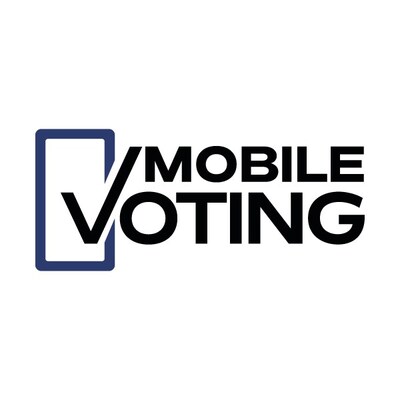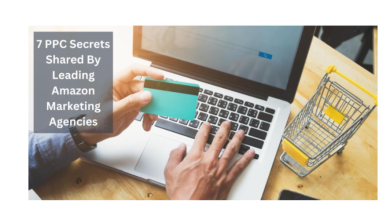
The Mobile Voting Foundation, founded by political strategist and philanthropist Bradley Tusk, supports and maintains the development of technology that aims to increase voting access by allowing Americans to securely vote from their mobile devices
Free & Fair is a spin-off of cybersecurity firm Galois and builds high-assurance, open-source election technologies that meet critical infrastructure standards of the US government
Election vendors Sequent and Democracy Live have both committed to begin implementing VoteSecure into their existing election product offerings in 2026; Democracy Live’s efforts in upcoming local elections in Anchorage, Alaska detailed in recent New York Times article
NEW YORK, Nov. 14, 2025 /PRNewswire/ — Today, the Mobile Voting Foundation and Free & Fair announced the release of VoteSecure, an open-source software development kit (SDK) designed to make secure, transparent, and end-to-end verifiable mobile voting possible. This technology milestone means that secure and verifiable mobile voting is within reach, and can begin to be implemented by election vendors for voters in cities and states across the country.
VoteSecure is the first open-source SDK for end-to-end encrypted and end-to-end verifiable mobile voting systems. The open-source SDK is now freely available on GitHub, allowing election technology vendors to audit, build upon, or integrate verifiable mobile voting into their platforms. Once implemented, the SDK allows for voters to receive a tracking code to follow the progress of their ballot. As an end-to-end verifiable system, voters can verify that their ballot was cast and count correctly throughout the process. It also ensures that the public can independently verify that the system is functioning correctly. VoteSecure also supports the use of identity verification tools like multi-factor authentication and biometric screening. Finally, VoteSecure is set up for airgapping, meaning that votes will only be tabulated once taken offline from the internet and that they are printed out for counting alongside traditional mail-in ballots.
“Mobile voting is how we will save our democracy,” said Bradley Tusk, Founder of the Mobile Voting Foundation. “VoteSecure demonstrates that mobile voting can meet the rigorous security standards necessary for our nation’s critical election infrastructure and begin to scale. No longer will voters in the military be forced to send back ballots via fax. No longer will busy working parents miss their chance to make their voice heard on Election Day. No longer will turnout in local races and primaries be decided by a small fraction of voters who actually turn out. With today’s release, we look forward to working with election vendors and election administrators to bring high assurance, verifiable mobile voting to Americans in more cities and states across the country.”
VoteSecure represents the culmination of 16 months of research and development following the roadmap outlined in the U.S. Vote Foundation’s Future of Voting report, co-authored by Dr. Joe Kiniry and Dr. Daniel Zimmerman. This report called for new election technology that is open source, accessible, end-to-end verifiable, and developed using high-assurance, traceable methods — all standards that have been met in the development of VoteSecure.
“I’m very proud of the team for what we have accomplished in this short time, as it will `raise all boats’ and over time, increase the trustworthiness of elections in the United States,” said Dr. Joe Kiniry, CEO & Chief Scientist of Free & Fair who led the VoteSecure build alongside Dr. Daniel Zimmerman, Principled Computer Scientist at Free & Fair. “The requirements set by the election community ten years ago in the Future of Voting report set a very high bar for any future remote voting system. VoteSecure builds on decades of basic and applied R&D for high-assurance engineering. Over the past 16 months, with the support of the Mobile Voting Foundation, we have developed an SDK that I believe meets the standards for the highest levels of certification. We are eager to support election vendors as they implement the SDK into real-world applications.”
Today’s release — detailed in full on the Free & Fair site — provides:
– Protocol: A cryptographic core that enables cast–as–intended, recorded–as–cast, and counted–as–recorded verification, yielding software independence and public auditability.
– Assurance artifacts: Domain and requirements models, a formal architecture specification, and the most comprehensive threat model for elections ever created.
– Security posture: Open design and code, trust distributed via threshold cryptography, verifiable shuffling and decryption (mixnets and zero–knowledge proofs), mutually authenticated signed protocol messages, sensitive keys and operations isolated in an air–gapped environment.
– Built with Rigorous Digital Engineering (RDE): A formal, model-based systems engineering methodology with precise models, analyzable specifications, and formal verification–centric design.
Election vendors Sequent and Democracy Live will begin implementing VoteSecure into their existing election product offerings in 2026. As this is an open-source protocol and reference cryptographic library, not a complete voting system, additional vendors, jurisdictions, and civic organizations in the United States and abroad can customize user experience and workflow while relying on a uniform, verifiable core and begin integrating VoteSecure into their products too. As more vendors integrate VoteSecure, more election jurisdictions will be able to offer secure mobile voting as an additional option to voters.
“We are excited to take part in and contribute our experience to the development of the VoteSecure SDK,” said Shai Bargil, Co-founder and CEO of Sequent. “We expect to onboard our first U.S.-based client with this new protocol in the second half of 2026. We believe that our collaboration with the Mobile Voting Foundation will help more government bodies and public organizations across the U.S. provide voters with a secure, convenient, and transparent remote voting experience, ultimately moving away from reliance on mail-in ballots in the coming years.”
“For over 25 years the elections community has been exploring technologies to ensure all voters, regardless of geography or disabilities, have equal access to voting,” said Bryan Finney, Founder and CEO of Democracy Live. With nearly 20 years’ experience supporting State and local elections across the U.S., Democracy Live can attest that VoteSecure goes a long way toward bridging the divide between access and security in U.S. elections and we look forward to working next year with our partners across the country to bring them the benefits of this new protocol.”
About The Mobile Voting Foundation
The Mobile Voting Foundation is a 501(c)(3) organization that supports and maintains the development of technology that will increase voting access by allowing Americans to securely vote from their mobile devices. The foundation, founded by political strategist, venture capitalist, and philanthropist Bradley Tusk, brought together and funded the expert group that developed VoteSecure, and will continue to maintain VoteSecure as it becomes adopted and integrated by election vendors, ensuring this open-source software remains available at no-cost to vendors, and educate election administrators, voters, and other democratic stakeholders to be critically informed users of digital democratic services.
About Free & Fair
Free & Fair, a spin-off of cybersecurity firm Galois, builds high–assurance, open source election systems with verifiable evidence of their correctness and security. They work towards systems that meet the same reliability and security standards as the US government demands for national security.
Contact: [email protected]
View original content to download multimedia:https://www.prnewswire.com/news-releases/the-mobile-voting-foundation-and-free–fair-release-votesecure-the-first-software-development-kit-for-secure-transparent-and-verifiable-mobile-voting-302615896.html
SOURCE Mobile Voting Foundation




